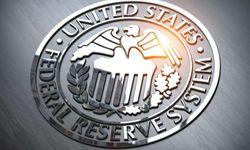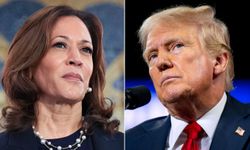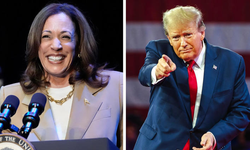Since China joined the World Trade Organization in 2001, US-China trade has boomed. The value of US imports of goods from China, which stood at around $100 billion in 2001, rose to more than $500 billion in 2022.
While the US and China are among each other's largest trading partners, the two countries' interdependence, geopolitical tensions and supply chain disruptions have at times put US-China trade at risk.
Chinese companies, supported by state subsidies, have gained a significant advantage in international competition, while China's rapid development has threatened the US' strong position in the global economy.
Trade between the two countries, which once benefited both US and Chinese consumers and companies due to low prices and high profits, later led the US administration to become increasingly concerned about the risks of China's development, including manufacturing job losses, national security and currency manipulation.
Trade restrictions imposed over "national security" concerns
Donald Trump, who handed over the US Presidency to Joe Biden on January 20, 2021, imposed billions of dollars of import tariffs on China during his presidency. While Trump's successor Biden also continued the tariffs against China, some technological products such as artificial intelligence chips were also restricted from exporting to China.
US Commerce Secretary Gina Raimondo argued in a statement that they do not aim to harm China's economic growth with export restrictions.
Emphasizing the importance of national security, Raimondo explained that the aim was to prevent China from accessing advanced semiconductors that could trigger breakthroughs in artificial intelligence, especially in military uses.
Treasury Secretary Janet Yellen also emphasized the importance of Indo-Pacific countries for the US economy and stated that the Biden administration is committed to expanding trade and investment with the region.
Stating that the US is not trying to separate from China, Yellen said, "A complete separation of our economies or an approach in which countries, including those in the Indo-Pacific, are forced to take sides would have significant negative effects globally. Given the size of economic linkages in the Indo-Pacific region and the complexity of global supply chains, this is simply not practical."
Supply chains remained intertwined
Bilateral trade between the US and China continued to expand despite the "trade wars", pandemic, Russia-Ukraine War and geopolitical tensions. In the first 9 months of the year, US imports from China exceeded 316 billion dollars, while the total trade volume between the two countries approached 422 billion dollars.
However, China's share in total US imports fell to 14 percent as of September 2023, down from nearly 22 percent in 2016. It was noteworthy that this decline was concentrated in tariffed goods.
While the US and China appear to be becoming less dependent on each other in trade, their supply chains have remained intertwined, especially for strategic products.
Considering the total volume of exports and imports as of September this year, Mexico was the number one trading partner of the US with nearly $600 billion, followed by Canada with $582 billion. Thus, China ranked third among the US's trading partners in terms of total import and export volume.
In the 9 months of the year, Mexico's share in total US imports surpassed China with 15.5 percent.
Communication strengthened with diplomatic contacts
During US President Biden's meeting with Chinese President Xi Jinping last year, it was agreed to increase cooperation on issues such as macroeconomics, climate and debt distress.
High-level contacts have also intensified since June in Washington-Beijing relations, which came to a standstill due to the crisis caused by the entry of a Chinese high-altitude balloon into US airspace in February.
Following US Secretary of State Antony Blinken's visit to China in June, which was canceled due to the balloon crisis, Yellen and Special Envoy for Climate Change John Kerry visited the country in July and Raimondo in August.
In addition, in the "Report on Macroeconomic and Foreign Exchange Policies of Major Trading Partners of the United States" submitted to Congress, the US Treasury Department reiterated the Treasury's call for China to increase transparency.
The report pointed out that China's failure to publish its foreign exchange intervention and lack of broader transparency about the key features of the exchange rate mechanism put the country in an outlier position among major economies, and this situation requires the Treasury to closely monitor China.
Aiming to stabilize bilateral economic relations
On the other hand, in a statement released by the Treasury Department, it was announced that Secretary Yellen will meet with China's Deputy Prime Minister for Economic Affairs Hı Lifıng in San Francisco on November 9-10.
Emphasizing that the meetings will be held at a time of intensified diplomatic traffic between the two countries, the statement said that the meetings, which will be held today and tomorrow just before the Asia Pacific Economic Cooperation (APEC) Finance Ministers Meeting, aim to stabilize bilateral economic relations between the US and China and to make progress on key economic issues.
Emphasizing at every opportunity that they seek a constructive and fair economic relationship with China, Yellen stated that she will discuss with Lifıng serious concerns about Beijing's "unfair economic practices", including the large-scale use of non-market instruments, barriers to market access and coercive actions against US firms in China.














